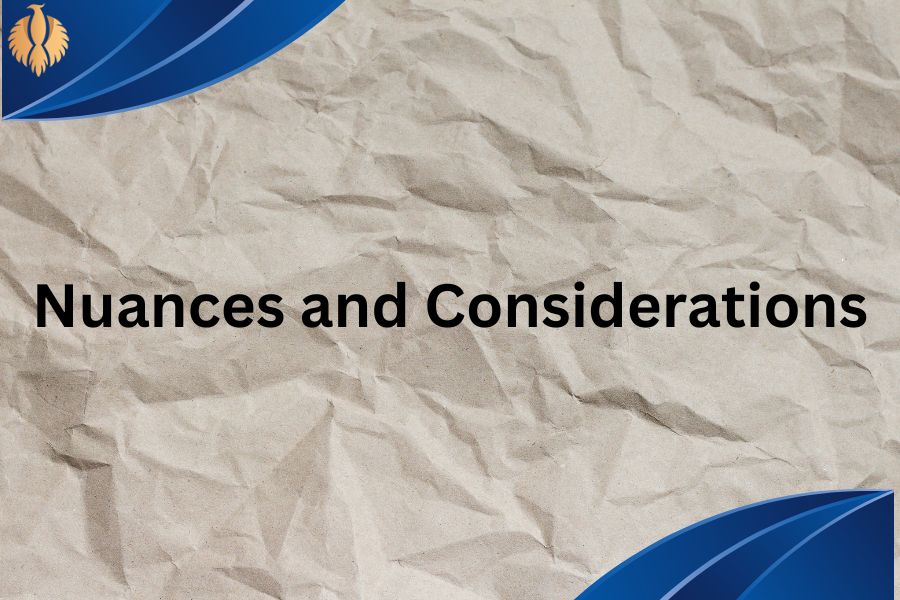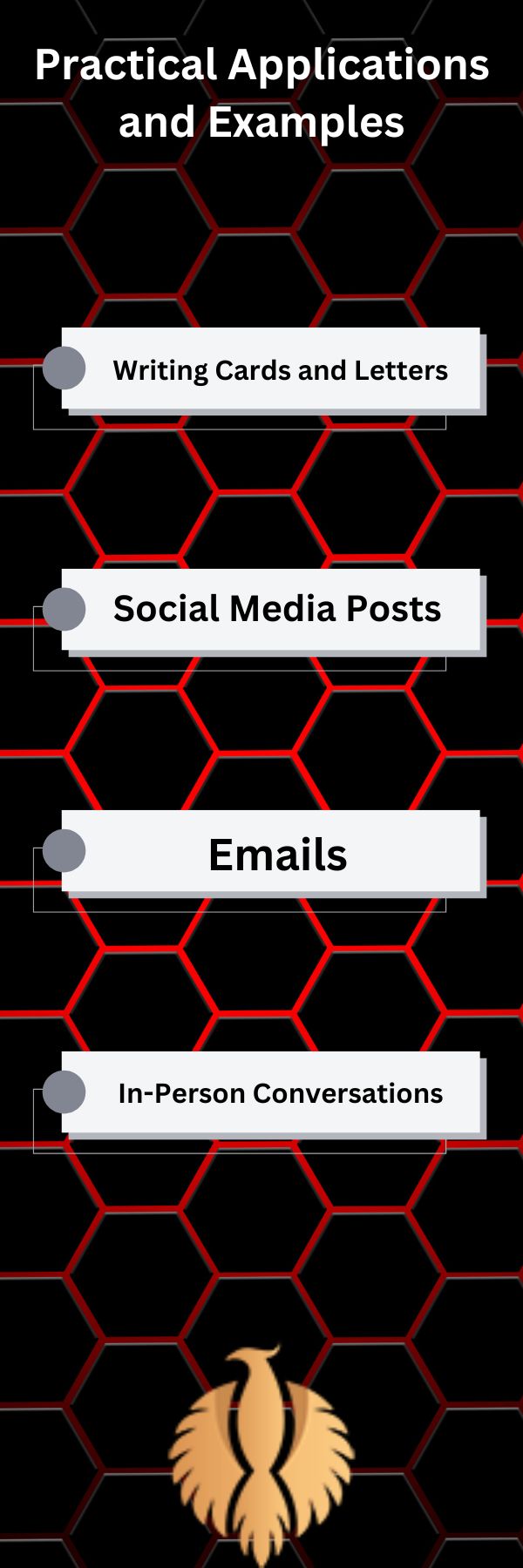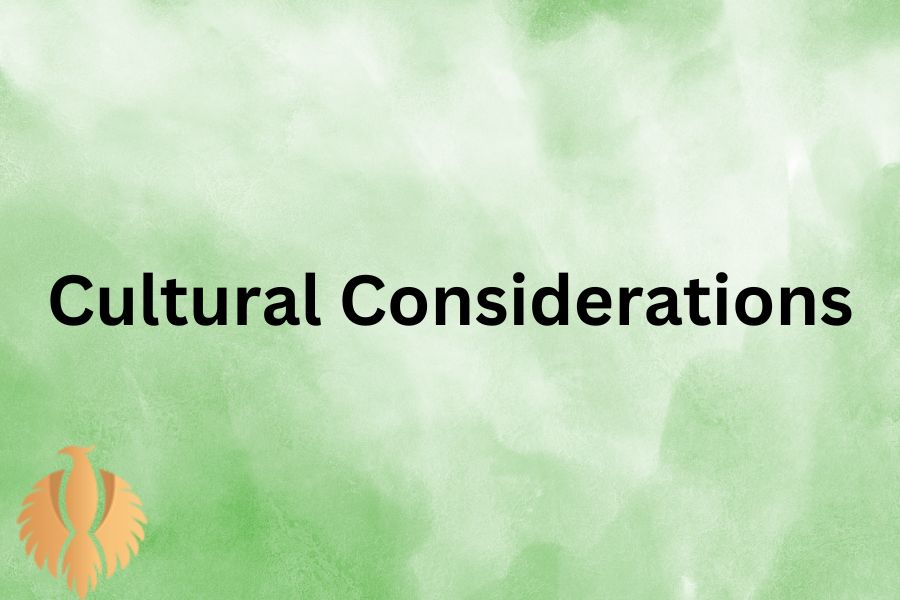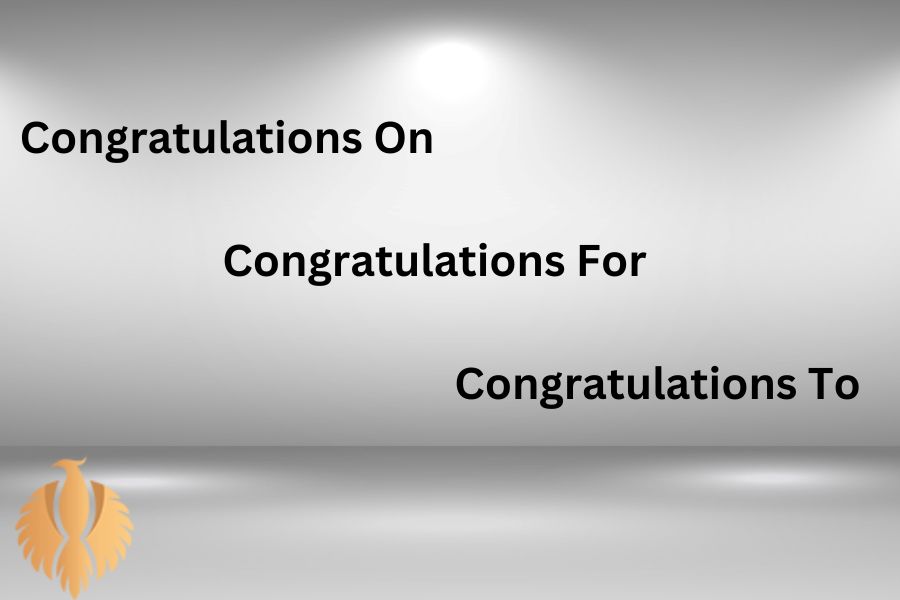Although they are frequently used interchangeably, the expressions “congratulations on,” “congratulations for,” and “congratulations to” are frequently used to express praise and acknowledgment for accomplishments or noteworthy events.
Each has specific connotations and appropriate contexts; in this in-depth analysis, I will break down these expressions, offer specific examples, and delve into their subtle applications.
“Congratulations on” is typically used when referring to specific achievements or milestones, such as “Congratulations on your promotion” or “Congratulations on your wedding.”
This phrase emphasizes the event or accomplishment itself. On the other hand, “congratulations for” is often used to praise someone for their efforts or actions, such as “Congratulations for your hard work” or “Congratulations for your dedication.”
This usage highlights the effort or behavior that led to the achievement. Lastly, “congratulations to” is used to direct the praise towards a person or group, for example, “Congratulations to the team” or “Congratulations to you.” This phrase focuses on the recipient of the congratulations.
Understanding these nuances can enhance your communication by ensuring that your praise is both appropriate and meaningful.
For instance, using “congratulations on” when acknowledging a specific event can make your message more precise, while “congratulations for” can be more encouraging when recognizing someone’s efforts.
Similarly, “congratulations to” can be particularly effective in group settings, ensuring that everyone feels included and appreciated.
By mastering these expressions, you can convey your congratulations in a way that is both accurate and heartfelt.
You might also enjoy: Would It Be Possible: Meaning, Usage, and Examples
Congratulations On

“Congratulations on” is a phrase that carries a sense of admiration and celebration for a particular achievement or milestone.
It is commonly used in contexts where someone has accomplished something noteworthy, such as graduating from college, landing a new job, or completing a project successfully.
The preposition “on” in “congratulations on” serves to link the congratulatory message directly to the specific event or accomplishment being acknowledged.
This usage helps to emphasize the significance of the achievement and shows genuine appreciation for the efforts and dedication involved.
For example, saying “Congratulations on your promotion!” recognizes someone’s professional advancement and hard work. Similarly, “Congratulations on your wedding!” celebrates a significant life event.
Using “congratulations on” effectively conveys warmth and encouragement, making the recipient feel recognized and appreciated for their accomplishments.
It’s a versatile phrase that can be used in both formal and informal settings to share joy and support for others’ successes
Common Uses:
- Achievements and Milestones: This phrase is often used when recognizing someone’s success in achieving a particular goal, such as graduation, promotion, or winning an award.
- Personal Life Events: It is also appropriate for significant personal life events, such as engagements, marriages, and the birth of a child.
Examples:
- “Congratulations on your promotion! You’ve worked so hard for this.”
- “Congratulations on graduating with honors. Your dedication has truly paid off.”
- “Congratulations on your engagement!”
In these examples, the preposition “on” effectively highlights the specific accomplishment or event being celebrated.
Congratulations For
“Congratulations for” offers a nuanced expression of praise that focuses more on the effort, actions, or qualities that led to the achievement. Unlike “congratulations on,” which directly acknowledges the achievement itself, “congratulations for” highlights the underlying reasons or efforts behind the success.
For instance, saying “Congratulations for your hard work!” honors someone’s perseverance and dedication in accomplishing a difficult endeavor or undertaking.
Similarly, “Congratulations for your perseverance!” acknowledges someone’s determination in overcoming obstacles.
The phrase “congratulations for” often implies a cause-and-effect relationship where the cause is the individual’s actions, qualities, or behavior, and the effect is the successful outcome.
It emphasizes the personal qualities or efforts that contributed to the achievement, making it a thoughtful and appreciative form of praise.
Using “congratulations for” allows me to express admiration not only for the outcome but also for the qualities and actions that led to it.
It shows recognition of someone’s hard work, dedication, or personal growth, making the congratulatory message more meaningful and specific to the individual’s efforts and achievements.
Common Uses:
- Efforts and Actions: This phrase is appropriate when the focus is on the actions or efforts that led to the achievement.
- Commendable Behavior: It is also used to commend someone for displaying commendable behavior or traits.
Examples:
- “Congratulations for your hard work and dedication. It has truly paid off with this promotion.”
- “Congratulations for persevering through such a challenging project. Your effort is commendable.”
- “Congratulations for your outstanding performance in the marathon.” ♂️
These examples demonstrate how “for” shifts the focus slightly towards the effort or behavior rather than the specific event or milestone itself.
Congratulations To
“Congratulations to” is a straightforward and informal expression of congratulations that places emphasis on the person or group receiving the well-wishes.
Unlike “congratulations on” or “congratulations for,” which highlight the achievement or effort, “congratulations to” directs attention to the recipient themselves.
For example, saying “Congratulations to Sarah on her new job!” focuses on Sarah as the recipient of the congratulations, acknowledging her accomplishment in a direct and personal way.
Similarly, “Congratulations to the team for being hard working!” recognizes the entire team for their collective effort and dedication.
This phrase is commonly used in casual or familiar settings among friends, family, or colleagues to celebrate achievements or milestones.
It conveys warmth and personal connection, making the congratulatory message more intimate and supportive.
Using “congratulations to” allows me to express joy and encouragement directly to the person or group being congratulated, reinforcing their accomplishment and celebrating their success in a friendly and approachable manner.
Common Uses:
- Informal Settings: This phrase is ideal for informal occasions or when the congratulatory message is intended for a friend, family member, or close colleague.
- Groups or Teams: It is also frequently used when addressing groups or teams who have achieved something collectively.
Examples:
- “Congrats to you on your new job! That’s awesome.”
- “Congrats to the whole team for winning the championship. You guys rocked!”
- “Congrats to Sarah on her new baby. She must be thrilled.”
In these examples, “congrats to” directs the celebratory message towards the individual or group rather than explicitly mentioning the achievement or effort.
You might also enjoy: Here You Go Meaning ; [Examples + Definitation] ; 2024
Detailed Analysis and Contextual Usage

To further understand these phrases, let’s delve into more detailed contexts and examples, illustrating how they can be used appropriately in different scenarios.
-
Professional Achievements:
- Promotion:
- “Congratulations on your promotion to manager. You’ve earned it through your consistent hard work and leadership.”
- “Congratulations for demonstrating exceptional skills and dedication, which led to your promotion.”
- “Congratulations to Jane for her promotion. She’s an inspiration to us all.”
- Award:
- “Congratulations on nominating the best employee of the Year award. Your contributions have been outstanding.”
- “Congratulations for receiving this esteemed prize for your creative thinking and hard work.”
- “Congrats to the entire research team for winning the Best Innovation award.”
-
Academic Success:
- Graduation:
- “Congratulations on your graduation! Your hard work has finally paid off.”
- “Congratulations for completing your thesis with such thorough research and analysis.”
- “Congrats to all the graduates. You’ve all achieved something remarkable.”
- Exams:
- “Congratulations on passing your exams with flying colors. Your effort was truly commendable.”
- “Congratulations for your consistent study habits that helped you succeed in your exams.”
- “Congrats to Emily for acing her exams. Well done!”
-
Personal Milestones:
- Marriage:
- “Congratulations on your wedding! Wish you all the best.”
- “Congratulations for finding your perfect partner.”
- “Congratulations to the newlyweds. May your journey be filled with health and wealth.” ♀️
- New Baby:
- “Congratulations on the birth of your baby girl! She’s beautiful.”
- “Congratulations for becoming wonderful parents. Your baby is so cute.”
- “Congratulations to the new parents. Welcome to the world, little one!”
-
Sports and Competitions:
- Winning a Game:
- “Congratulations on winning the championship! Your team’s effort was incredible.”
- “Congratulations for training so hard and playing with such determination. You deserved this win.”
- “Congrats to the soccer team for their victory. You guys played amazingly!”⚽️
- Completing a Marathon:
- “Congratulations on completing your first marathon! That’s an amazing achievement.”
- “Congratulations for your dedication to training and pushing through the challenges of the race.”️
- “Congrats to all the marathon runners. You’ve all accomplished something fantastic.”
You might also enjoy: Pennies On the Dollar: Meaning + Grammar + 5 Ways to Use It
Nuances and Considerations

While the basic guidelines for using these phrases are straightforward, nuances in tone and context can influence the choice of preposition.
Here are some additional considerations:
-
Formality and Tone:
- Formal Settings: In more formal or professional settings, “congratulations on” and “congratulations for” are generally preferred due to their slightly more formal tone.
- Example: “Congratulations on your successful presentation to the board.”
- Informal Settings: “Congrats to” is suitable for informal settings, friendly conversations, or social media posts where brevity and casual tone are appropriate.
- Example: “Congrats to you for finishing your difficult project!”
-
Emphasis:
- Achievement vs. Effort: Use “on” to emphasize the specific achievement or event, and “for” to highlight the effort or actions leading to it.
- Example (achievement): “Congratulations on winning the award.”
- Example (effort): “Congratulations for your dedication and hard work.”
-
Clarity:
- Specificity: Be clear about what is being congratulated. This ensures that the recipient understands the specific accomplishment or effort being recognized.
- Example: “Congratulations on your new job” vs. “Congratulations for your skills and experience that secured you this job.”
-
Personalization:
- Individual vs. Group: Tailor your message based on whether you’re congratulating an individual or a group. “Congrats to” can be particularly effective for groups.
- Example: “Congratulations to Tara for her success in the championship.”
Practical Applications and Examples

-
Writing Cards and Letters:
When writing a congratulatory card or letter, choose the phrase that best matches the achievement and your relationship with the recipient. Here are some templates:
-
Formal Letter:
“Dear [Name],
I am writing to extend my heartfelt congratulations on your recent promotion to [position]. This accomplishment is a testament to your hard work and dedication to our organization.
Congratulations once again, and I look forward to your continued success.
Best regards, [Your Name]”
-
Informal Card:
“Hey [Name],
Just heard the great news! Congrats to you on landing that amazing new job. You’ve always been such a hard worker, and it’s awesome to see you getting the recognition you deserve.
Can’t wait to celebrate with you!
Cheers, [Your Name]”
-
Social Media Posts:
Social media is a great platform to share congratulatory messages publicly. Here are some examples of how to use each phrase appropriately:
-
Facebook Post:
- “Congratulations on your new home, [Name]!”
- “Congratulations for completing your first marathon, [Name]! Your dedication is inspiring.”
-
Twitter: ️
- “Congrats to @Username on graduating with honors! Your hard work paid off!”
- “Congratulations on the new baby, @Username! She’s beautiful.”
- “Congrats to the championship-winning team! You all were amazing!”
-
LinkedIn:
- “Congratulations on your promotion to Senior Analyst, [Name]. Your hard work and dedication have truly paid off.”
- “Congratulations for achieving record sales this quarter, [Name]. Your innovative strategies and commitment have made a significant impact.”
- “Congrats to the marketing team for the successful product launch. Outstanding work!”
-
Emails:
When sending congratulatory emails, consider the relationship and the context. Here are templates for different situations:
- Professional Email:
- “Subject: Congratulations on Your Promotion
Hi [Name],
I wanted to personally congratulate you on your promotion to [position]. Your commitment and hard work have certainly paid off. This is a well-deserved recognition of your talents.
Best regards, [Your Name]”
- “Subject: Congratulations on Your Promotion
- Casual Email:
- “Subject: Congrats!
Hey [Name],
qJust heard about your new job! Congrats to you! That’s fantastic news. I’m so happy for you and can’t wait to catch up and hear all about it.
Take care, [Your Name]”
- “Subject: Congrats!
-
In-Person Conversations:
Using these phrases in spoken language can also vary based on the context:
- Formal Context:
- “I wanted to congratulate you on your recent success. It’s truly well-deserved.”
- Informal Context:
- “Hey, congrats to you on the new gig! That’s awesome!”
- “Congrats on the baby! So happy for you guys.”
You might also enjoy: I Have No Clue [Meaning + Examples]- All You Need To Know!
Cultural Considerations

The way congratulations are expressed can vary across different cultures and languages. While the essence of congratulating someone remains universal, the phrases and customs can differ significantly. Here are a few examples:
-
Spanish:
- “Felicidades” or “Enhorabuena” are commonly used in Spanish to say congratulations.
- “Graduation: Felicidades por tu graduación.”
- “New born: Felicidades por el nacimiento de tu bebé.”
-
French:
- “Félicitations” is the French word for congratulations.
- “Engagement: Félicitations pour vos fiançailles.”
- “Award: Félicitations pour avoir reçu ce prix.”
You might also enjoy: No Earlier Than – All You Need To Know [Meaning + Examples]
Conclusion
Understanding the nuances of “congratulations on,” “congratulations for,” and “congrats to” can enhance your ability to communicate effectively and appropriately in various contexts. Here’s a quick recap:
- Congratulations On: Best used to directly link the praise to a specific achievement or event. ️
- Example: “Congratulations on your new job.”
- Congratulations For: Emphasizes the effort, actions, or reasons behind the achievement.
- Example: “Congratulations for your hard work and dedication.”
- Congrats To: A more informal and direct way to address the person or group being congratulated.
- Example: “Congratulations to you on your promotion.”
By choosing the right phrase for the occasion, you can convey your message with clarity and thoughtfulness, ensuring that your congratulations are both meaningful and appropriate for the context.
Whether in written form, spoken words, or across different cultures, these expressions of praise and recognition play a vital role in celebrating the achievements and efforts of those around us.

Hi, welcome to my blog! My name is Omid and I am thrilled to have you here! I am an English language teacher with 12 years of experience and hold multiple international certifications (TESOL, IELTS, TOEFL, PTE, CELTA). Additionally, I hold a PhD in Applied Linguistics with a specialization in Teaching English as a Second Language (TESL), which fuels my passion for teaching English and assisting others in mastering the language. To me, nothing is more rewarding than helping individuals enhance their English language abilities through various methods. So, let’s embark on this journey of learning English together.




